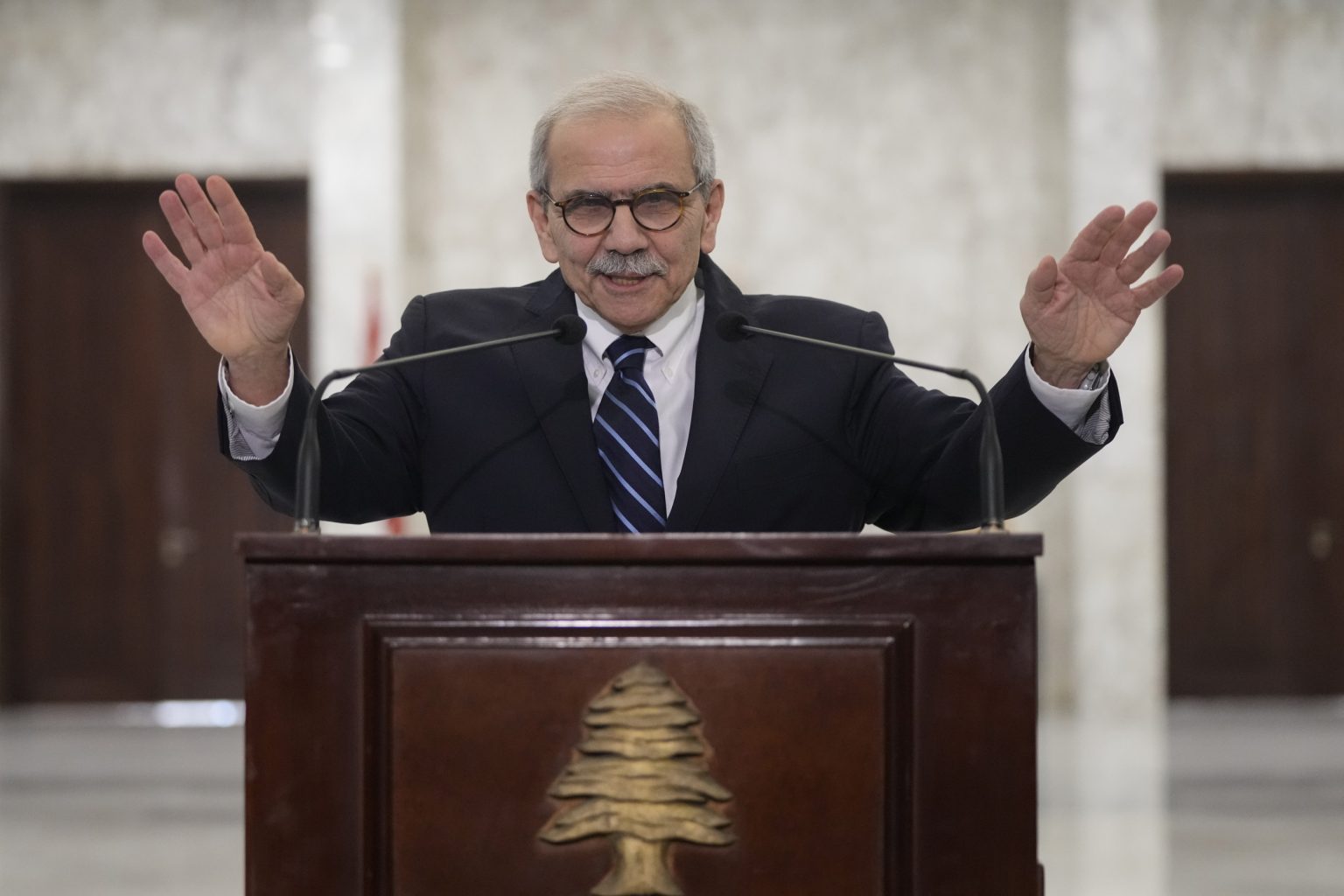The nomination of Nawaf Salam as Lebanon’s new prime minister marks a pivotal moment in the nation’s arduous journey towards recovery and stability. Emerging from the ashes of a devastating war with Israel and grappling with a multifaceted economic crisis, Lebanon has been teetering on the brink of collapse for several years. Salam’s appointment, coupled with the recent election of President Joseph Aoun, signifies the dawn of a new chapter in Lebanese politics, offering a glimmer of hope for a nation desperately seeking respite from prolonged turmoil. The caretaker administration, which has been steering the country through turbulent waters, is finally poised to hand over the reins to a newly formed government, marking a significant step towards restoring political normalcy after a two-year hiatus.
Salam, a distinguished jurist currently presiding over the International Court of Justice, inherits a nation riddled with complex challenges. The scars of the 14-month war with Israel are deep, leaving a trail of destruction in its wake. Beyond the staggering loss of 4,000 lives, the conflict inflicted massive infrastructural damage, further crippling a nation already reeling under the weight of a severe economic meltdown. The Lebanese financial system is in shambles, with banks barely functioning and the public sector crippled by a lack of resources. Essential services, such as electricity, are primarily provided by private diesel generators, highlighting the dire state of public infrastructure. This precarious situation has been exacerbated by the COVID-19 pandemic and the catastrophic Beirut port explosion in 2020, which devastated large swathes of the capital city.
Against this backdrop of devastation and despair, Salam’s primary mission is to rebuild Lebanon from the ground up. He has pledged to implement comprehensive reforms aimed at revitalizing the shattered economy and attracting much-needed international aid and investment. His vision centers on creating a “modern economy” capable of generating sustainable growth and providing opportunities for its citizens. The successful implementation of these reforms could unlock billions of dollars in financial assistance from foreign donors, providing a crucial lifeline for the struggling nation. However, navigating the treacherous political landscape and securing parliamentary support for his ambitious agenda will be a formidable task.
A key aspect of Salam’s approach is his commitment to inclusivity and consensus-building. He has vowed to avoid marginalizing any political faction, a subtle yet significant gesture towards Hezbollah, the powerful militant group that has played a dominant role in Lebanese politics. In the past, Hezbollah has opposed Salam’s candidacy for the premiership, even expressing a preference for another candidate in the recent elections. However, weakened by the prolonged conflict with Israel, the group has seemingly set aside its objections, paving the way for Salam’s appointment. This shift in Hezbollah’s stance could be instrumental in fostering a more cooperative political environment, crucial for the success of Salam’s reform agenda.
Salam’s commitment to resolving the long-standing conflict with Israel is another cornerstone of his platform. He has pledged to uphold the UN Security Council resolution, which calls for Israel’s withdrawal from southern Lebanon and the disarmament of Hezbollah in the border region. This delicate balancing act requires navigating the complex dynamics between Lebanon, Israel, and Hezbollah, a task that will demand considerable diplomatic finesse. Achieving a lasting peace with Israel is crucial not only for Lebanon’s security but also for its economic recovery, as it would unlock significant international investment and aid.
The road ahead for Salam is fraught with challenges. Forming a cohesive and effective government capable of tackling Lebanon’s multifaceted crises is his immediate priority. Securing parliamentary approval for his proposed reforms and reconstruction plans will require navigating the deep political divisions that have plagued the country for years. Furthermore, the ongoing economic crisis, coupled with the devastation caused by the war and the Beirut port explosion, presents a daunting task of rebuilding infrastructure and restoring essential services. Successfully addressing these challenges will require not only strong leadership but also the unwavering support of the international community. Salam’s call for unity and his commitment to inclusive governance offer a glimmer of hope for a nation yearning for stability and prosperity. His success will depend on his ability to forge consensus among Lebanon’s diverse political factions and garner international support for his ambitious reform agenda.
The international community has a vested interest in Lebanon’s stability and recovery. The prolonged conflict with Israel, coupled with the economic crisis, has created a breeding ground for instability in a strategically important region. The influx of refugees fleeing the war has also placed a strain on neighboring countries, exacerbating regional tensions. A stable and prosperous Lebanon is essential for regional peace and security. The international community must therefore provide robust support to Salam’s government, both financially and politically. This includes providing much-needed financial assistance for reconstruction efforts, as well as diplomatic support for resolving the conflict with Israel. The international community also has a role to play in promoting political dialogue and reconciliation within Lebanon, helping to bridge the deep divisions that have hampered the country’s progress for so long.
In conclusion, Nawaf Salam’s appointment as prime minister represents a critical juncture for Lebanon. He inherits a nation grappling with unprecedented challenges, but his commitment to reform, reconstruction, and inclusive governance offers a beacon of hope. The success of his mission will depend on his ability to navigate the complex political landscape, secure parliamentary support for his agenda, and garner the unwavering support of the international community. The coming months will be crucial in determining whether Lebanon can finally emerge from the shadows of its recent past and embark on a path towards sustainable peace and prosperity.

